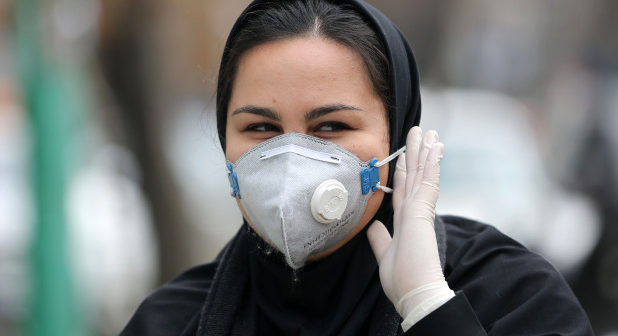The Pan American Health Organization (PAHO) has issued several recommendations on the use of face masks in the wake of widespread fear over the global spread of the coronavirus – COVID-19.
PAHO says using the masks during outbreaks of viral illnesses, such as the coronavirus disease 2019 (COVID-19), has only been shown in scientific studies to be effective for protecting healthcare workers and to reduce the risk of sick patients spreading the disease.
Based on that evidence, PAHO has recommended the use of face masks by people who have respiratory symptoms such as coughing, sneezing or difficulty breathing, including when they are seeking medical attention – to protect others around them.
PAHO said people, including family members, who are providing care to individuals with respiratory symptoms, can also use the masks.
The regional health body also recommended the use of the face masks by healthcare workers when entering a room with patients or treating an individual with respiratory symptoms, and according to the type of care that will be provided.
But PAHO warned that wearing a face mask alone is not guaranteed to stop infections in any of these circumstances, adding that it should be combined with other personal protective measures such as hand hygiene, keeping distance from people with symptoms, respiratory hygiene or cough etiquette.
“No preventive measure is 100 percent effective in preventing infection but, practiced together, they can reduce the chances of spreading infection”, said PAHO Deputy Director Jarbas Barbosa.
PAHO said studies have shown no clear benefit from face mask use for people who are not sick.
It said some research shows that people can become infected from touching a contaminated mask they have been wearing or by removing it incorrectly.
During an outbreak, such as COVID-19, PAHO said several measures may help people to reduce their chances of becoming infected.
PAHO recommended that people wash hands frequently or use alcohol-based hand rub.
“Always wash with soap and water when hands are visibly soiled,” said PAHO, urging people to refrain from touching their noses or mouths, “which are common routes of contagion.”
PAHO also recommended that people avoid crowds and limit their visits to closed spaces with others.
In addition, the regional health agency urged that people avoid handshaking and other forms of physical contact, and maintain a distance of at least 1 metre or three feet from any individual who is showing respiratory symptoms, such as coughing or sneezing.
If one has symptoms, such as coughing, sneezing or having difficulty breathing, PAHO recommended wearing a face mask, in case one is infected, to prevent further disease spread.
If one is not wearing a mask but coughing and sneezing, PAHO urged that one covers one’s nose and mouth with your flexed elbow or a paper tissue, then dispose of the tissue and wash one’s hands.
“This is a new virus,” said Barbosa referring to COVID-19, “so we are still gathering information about it.
“But the evidence already available is showing that it is similar enough to other viruses that we are fairly confident these recommendations are good advice for reducing the chances of infection,” he added.
